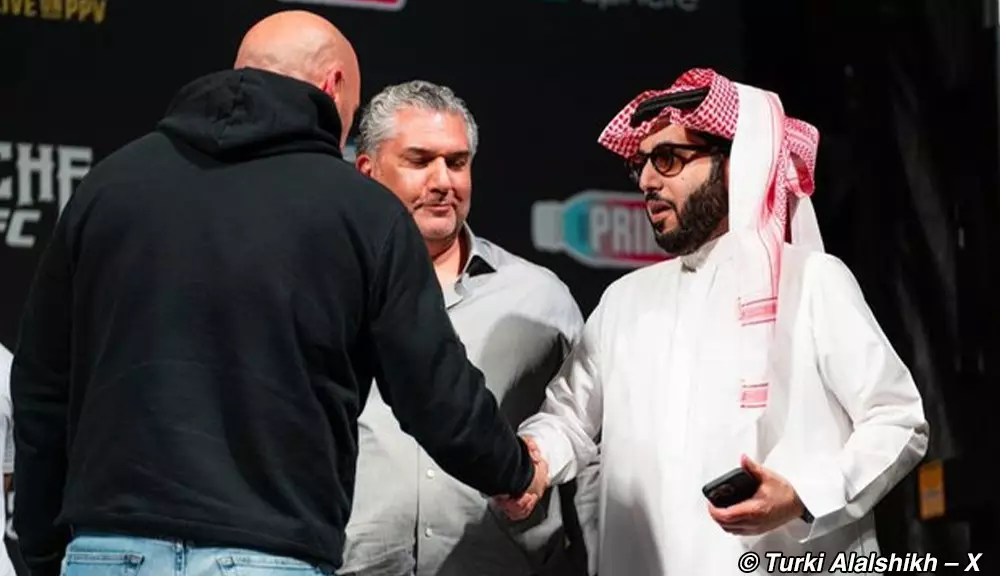In recent years, the boxing world has witnessed a seismic shift in its operations and promotional strategies. The prominence of Saudi Arabia in hosting high-profile boxing bouts has raised eyebrows and reshaped the competitive landscape. UFC CEO Dana White’s reaction to Canelo Alvarez signing a four-fight contract with Riyadh Season encapsulates this evolution. The deal signifies more than just a contractual obligation; it is emblematic of a deeper trend where traditional powers in sports promotion are being challenged by new entities with substantial financial resources.
The rise of Saudi Arabia as a pivotal player in combat sports can largely be attributed to its willingness to invest vast sums of money to attract global talent. With the country’s General Entertainment Authority, led by Turki Alalshikh, spearheading this endeavor, their ability to lure top fighters like Alvarez demonstrates the new power dynamics at play. Dana White articulated that when it comes to boxing, the financial clout of Saudi Arabia allows it to “steal” talent away from established promoters such as Jake Paul’s Most Valuable Promotions. This development sheds light on a changing paradigm where financial influence trumps traditional promotional clout.
Canelo Alvarez’s decision to forgo a much-anticipated bout with Jake Paul in favor of a potentially more lucrative schedule in Saudi Arabia sparks conversations about the motivations behind such choices. It’s clear that beyond the immediate financial benefits, Alvarez’s move could be perceived as a strategic career maneuver. By aligning with Riyadh Season, he positions himself within a high-stakes environment that aims to showcase major boxing events on a grand scale. The forthcoming fight against William Scull on May 3 will not only establish Alvarez further in this new territory but also open doors for future encounters with other top-tier fighters, such as Terence Crawford.
White’s commentary on the disparity between the promotional levels characteristic of traditional boxing entities and those emerging in the Middle East hints at a larger conversation regarding the future of the sport. The contrast he invokes speaks to the necessity for conventional promoters to adapt to this shift or risk being overshadowed by these well-funded newcomers. As the UFC itself has recently experienced with its own successful events in Saudi Arabia, the ability to tap into different markets not only expands the industry’s potential but also changes how fighters view their earning power and opportunities.
A Broader Reflection on the Future of Combat Sports
The changing dynamics in boxing, particularly as highlighted by Alvarez’s move, offers a broader reflection on the future of combat sports. Athletes are increasingly becoming aware of their market value and the expansive commerce that comes from aligning with powerful promotional entities. As Saudi Arabia continues to invest in creating a foothold in this space, it will be interesting to observe how other fighters respond to this new landscape. The implications of this shift could redefine not just the sporting calendar, but the very essence of how boxing is promoted, consumed, and experienced across the globe.

